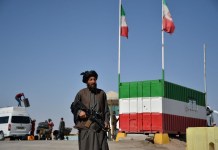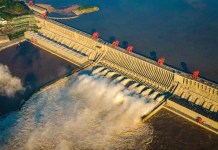The Indian Supreme Court has denied passing of an order for the immediate restoration of high speed (4G) mobile internet connections in Jammu and Kashmir.
A three-judge bench of the Supreme Court headed by Justice NV Ramana and constituting Justices Subhash Reddy and BR Gavai have ordered the central government to constitute a high-powered “special committee” to probe the state of affairs in the valley regarding the 4G internet services.
It is reported that the committee will be headed by the home secretary of the Union government. The position is currently held by IAS Ajay Kumar Bhalla of batch 1984.
Justice NV Ramana has said that “This court has to ensure that national security and human rights are balanced. We do recognize that UT has plunged into crisis. At the same time court is cognizant to the concerns related to ongoing pandemic and hardships.”
The order was originally reserved on May 4, 2020, after the apex court had heard all the arguments of the parties involved.
As reported by EurAsian Times previously, the Supreme Court of India, on March 26 had issued a notice to the Central government and Jammu and Kashmir (J&K) administration, on the plea of ‘Foundation for Media Professionals’ filed through advocate Shadan Farasat, which aimed to seek the restoration of 4G internet services in Jammu and Kashmir.
It was alleged that the government’s action (of blocking 4G internet services in Kashmir Valley) was violating the right to equality (Articles 14), freedom of speech (Article 19), right to life (Article 21) of the Indian Constitution.
“It has become challenging to communicate with my family members back home; earlier we could text or video call on so many platforms. It has become trouble now” 23-year-old Inayat Khan, pursuing her studies from Delhi tells the EurAsian Times.
Internet connections have largely been suspended in the valley since August 5 last year, post the abrogation of Article 370 and Article 35-A of the Indian constitution and the bifurcation of J&K into two Union Territories – J&K and Ladakh.
Mir Umar, a resident of Baramulla district of Kashmir Valley had told the EurAsian Times earlier in April that “it’s simply a denial of a fundamental right to the people of Kashmir. When the world is facing and fighting COVID-19, people in Kashmir are additionally fighting for the restoration of 4G internet.
On the flip side, an affidavit filed by the Jammu and Kashmir administration said that the right to internet access is not a fundamental right and it can curtail the freedom of speech and right to trade through the internet.
The affidavit mentioned that the misuse of data services for mobilising crowds by anti-national elements has the potential to cause large-scale violence, disturb public order and indeed threaten the security of the country.
The petitioners seeking restoration of 4G internet in Jammu and Kashmir had said that the 2G service is not adequate for education, health and business functions in the midst of coronavirus lockdown. Senior lawyer Huzefa Ahmadi, appearing for one of the petitioners, had last week claimed in the court that doctors were unable to obtain information about COVID-19 cure due to poor internet connectivity.




